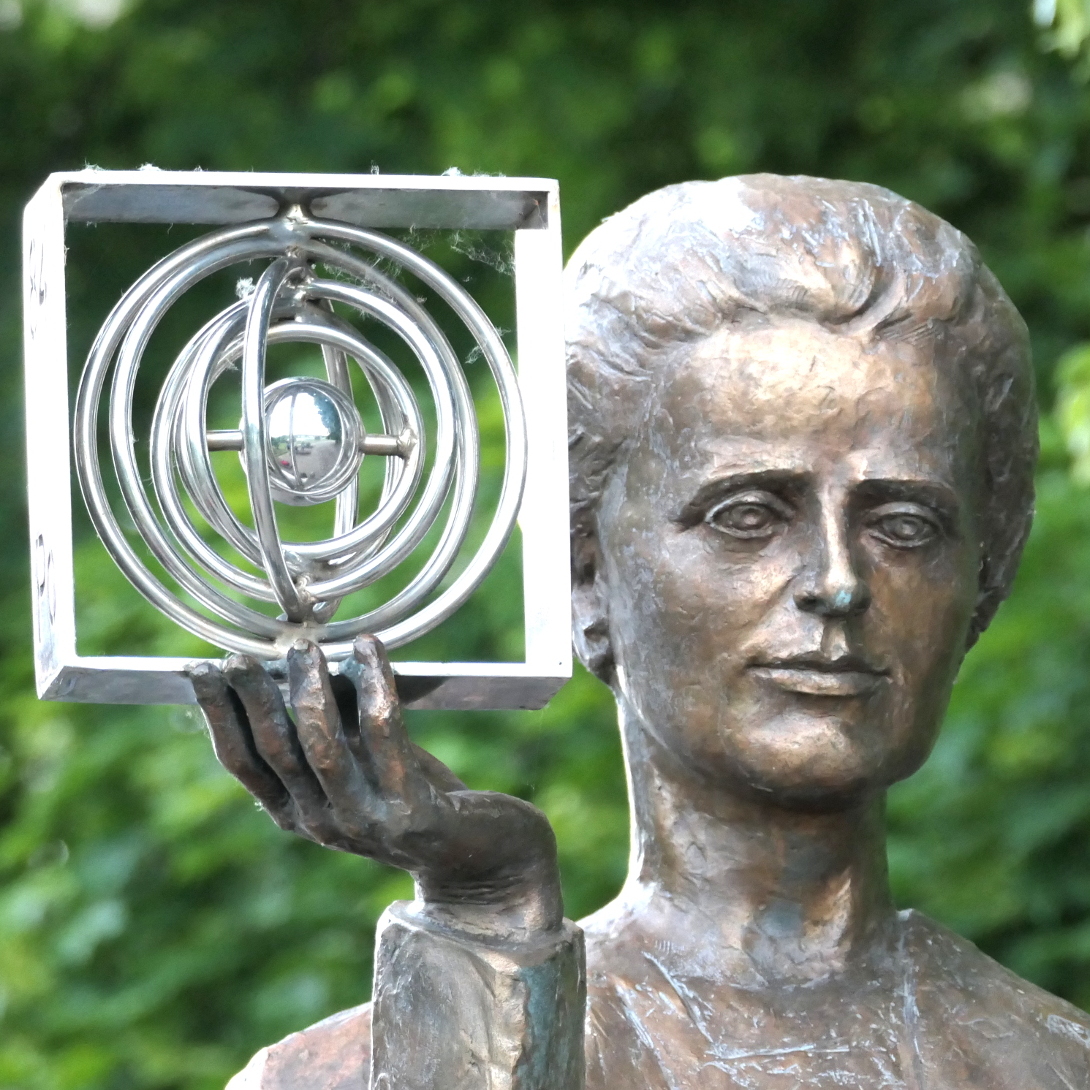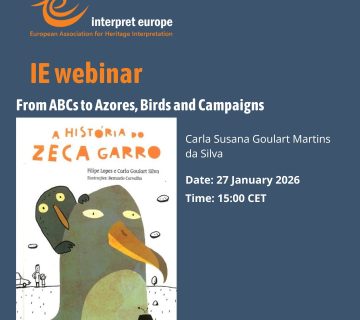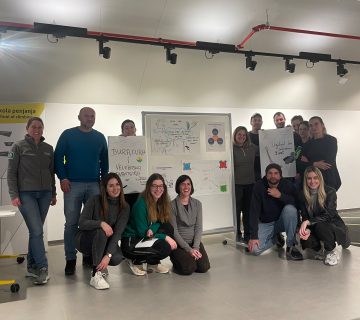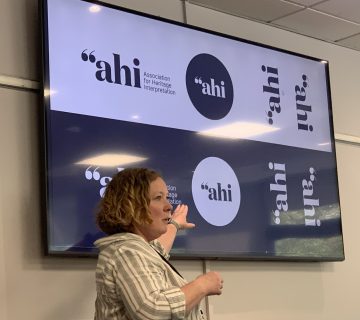Some thoughts inspired by IE’s annual conference 2025 and what the theme might mean for each of us.
When I was asked to do the wrap-up of this year’s conference, which took place 11-14 April in Poland, I was genuinely surprised—and I hesitated. But then I thought, “Yes, I’ll do it” because it would push me to be fully present throughout the conference. I’d have to pay close attention to everything that was said. It seemed like a great way to get the most out of the experience.
Following multiple sessions, keynote speakers, guides—for four days, all in English, which isn’t my mother tongue—was intense. Listening to people who, like me, were expressing themselves in a language that’s not their first can be quite demanding. I’m sure I wasn’t alone and many others could relate to that.
Maybe we shared more than just language challenges during the conference.
- We learned something about Polish history
- We had meaningful conversations with people we’d never met before
- We felt connected to people from other countries because you realised you face similar challenges in your work
We shared experiences.
And yet, I don’t have any universal truths for you following the conference. I can only offer my perspective—my point of view as a woman in her forties, from Belgium, working in cultural heritage, who only experienced part of this conference due to the many parallel sessions and study visits that were on offer to attend.
This conference reminded me that all we ever really have is our own point of view. What we perceive triggers associations—concepts and memories drawn from the personal backpack we each carry. And everyone’s backpack is different. We don’t know what others are carrying. So, we experience the world—and each other—differently.
For example: one morning, I stepped outside the hotel and said, “Wow, fresh air!”
The next person came out and said, “Oh, it’s so cold!”
Same moment, different perception.
After sessions, I would talk to others and be struck by how differently we interpreted the same speaker. So, I’ve come to believe, from my point of view, that if we want to truly understand one another, we need to listen more. Not just hear—but really listen. And perhaps ask questions that help us listen better, more deeply—questions that allow us to get past the walls our backpacks might build between us.
Another takeaway from the conference for me was the power of words.
This was beautifully explored during the guided tour I joined at the Piłsudski Museum. And it echoed throughout the conference—how words can empower, how they can give voice, and how sometimes, we need new words.
Take “sheroes” instead of “heroes”.
Maybe history should become herstory.
Luckily, someone reminded me—we already have her-itage!
Words matter.
Last night, I called my partner in Belgium and was raving about the study visit to Basha’s museum in Warsaw. He was surprised: “Marie Curie was Polish?!”
So, from now on, I’ve decided not to refer to her simply as Marie Curie, but as Marie Skłodowska-Curie.
Words matter.
Talking about motherhood isn’t the same as talking about the mothering soul in all of us.
Words matter—like the word originality in UNESCO’s World Heritage criteria. If we strictly followed the Western, material-based interpretation of originality, post-war reconstruction in Warsaw wouldn’t have been recognised as World Heritage. But thanks to the Eastern perspective—where originality lies in form—it was.
Words can unite, but they can also divide.
During the conference I learned that words can also limit the space for dialogue. Someone pointed out that if the Warsaw Uprising Museum had instead been called the Museum of the Polish Underground State, it might have allowed for a broader range of perspectives. Which title leaves more room for complexity?
This idea—making space for more—truly resonated with me during the conference.
As we discussed, we live in turbulent times. Rhetoric around protecting borders and making our own group “great again” dominates. So yes, perhaps striving toward a polyphonic approach to heritage, one that makes space for all perspectives, is more vital than ever. I was inspired by Marcin Napiórkowski’s keynote—and I think many others were too.
But I was also struck by the questions that followed his talk.
What about views that—fuelled by social media or political leaders promising simple answers to complex problems—turn out to be racist, sexist, or divisive?
Someone said: “Yes, but multiperspectivity must be grounded in an ethical framework.”
Hmmm, … From my point of view, that’s a difficult one. Because how can I advocate for values like openness, if I tell someone their point of view isn’t welcome?
Where does that leave room for dialogue?
Perhaps the value of openness—which I hold really dear—means that I, as an interpreter, must make space even for perspectives that might undermine my own values. That’s not easy. It’s even scary.
Still, the conversations I had in Sulejówek and Warsaw give me hope. Hope that it’s possible. That spaces like non-selective museums or natural environments can serve as starting points for real dialogue. For building trust—so we can keep talking, even when it’s hard.
(I learned that in Poland, there’s a study showing that while people may no longer trust institutions, they do still trust museums!)
Yet even with this hope, I’m left with another question:
Am I equipped to embrace radical multiperspectivity?
It feels like a risk.
How do I prepare myself for that?
How do I empower the guides in my museum, who are also afraid of this challenge?
How do we, as interpreters, become more like composers, as Marcin Napiórkowski suggested—people who step back, listen actively, and help shape harmony in this polyphony?
From my point of view, I hope we can keep talking about this. I’d love for us to explore how to meet this challenge together.
I will close with a quote from Piłsudski that I read in the museum. Suddenly, it meant something to me: “Only action has meaning. The best intentions are of no effect unless they result in practical consequences.”
So, when we are in our own places of action—natural and cultural—let’s struggle, try, fail, and try again. And let’s come back together next year, to share what we’ve learned and to interconnect our points of view.
Barbara Struys is responsible for Audience Development at Herita in Flanders. Barbara works on heritage interpretation and audience development in the sites Run by Herita, but also supports other heritage organisations in this matter. She can be contacted at: Barbara.struys@herita.be.
To cite this article: Struys, Barbara (2025) ‘Heroes and villains at iecon‘ in Interpret Europe Newsletter 1-2025, pg. 6-7.
Available online: PDF Newsletter Spring 2025




